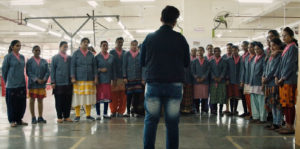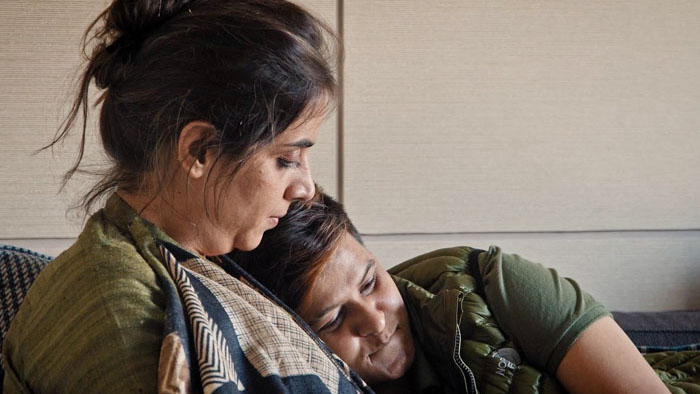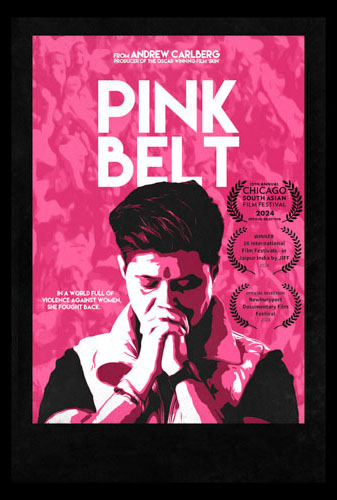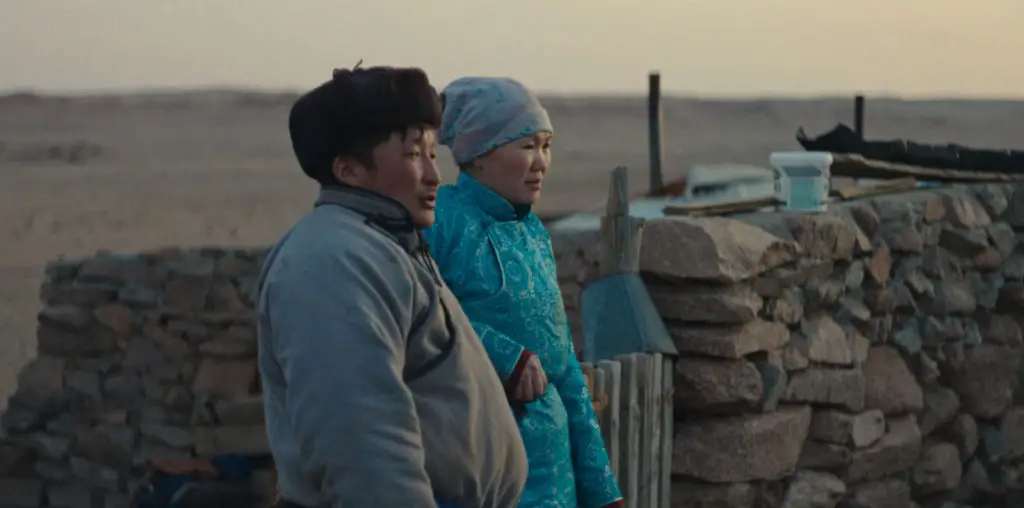
The best thing about Pink Belt is that one does not need to know anything about its subject, Aparna Rajawat, going in. Writer-director John McCrite’s documentary is about Rajawat and her desire to bring awareness to violence against women in India. Suffice to say, the subject’s life is well examined, but is that enough to sustain a feature-length film?
Born in 1979, Rajawat was raised in a mostly traditional Indian household. Martial arts captivated her from a young age, but her father initially opposed her joining. With the support of her sister, Manisha, they convinced their mother to let Rajawat enroll in self-defense classes. She proved to be a natural talent, winning India’s women’s martial arts national championships a record 16 times.
As her fame and influence grew, Rajawat longed to call out the violence so casually committed against women throughout her home country. So she began training women and formed the organization Pink Belt (a symbolic representation of women’s empowerment and self-defense) to keep that awareness going. Now, she sets out to do a seemingly impossible task. Ostensibly, that is what the film follows Rajawat setting up: she wishes to teach the single largest women’s self-defense class and break a world record. Can she accomplish it?

“…Rajawat longed to call out the violence so casually committed against women throughout her home country.”
Pink Belt is filled with interviews, mainly from Rajawat herself, but also from family members, women she’s helped, and allies who are present and along for the ride. The expected pictures, archival footage, and whatnot abound. In many ways, this is a standard documentary with all the talking heads and style one would associate with the filmmaking style. But if it’s not broken, why try and fix it? The style is suitable, and McCrite keeps everything moving well; the film is only 78 minutes long but packs in a ton of information.
The big draw here is Rajawat’s story and the examination of how acceptable violence against women is in India. One woman interviewed had acid thrown on her face… by her father. That man and her brother (I believe it was) found this heinous, violent crime to be an acceptable action. Heartbreakingly, that’s not even the most poignant or saddening story shared by the numerous victims who willingly participate here. Each tale is a call to action, a plea for change, and a wake-up for audience members around the world who were previously unaware that such barbaric acts were being perpetuated in India with such little thought toward the victims. In this way, McCrite and Rajawat have crafted one of the most difficult-to-watch, though important, documentaries of the year. The impact of Rajawat’s work is evident in the courage of these victims to share their stories and the growing awareness about the issue of violence against women it will bring the world over.
Pink Belt is a traditional documentary in terms of its style. But Rajawat is a charismatic and engaging subject, while the look at violence against women in India is disheartening and anguishing. If there’s justice in this world, then hopefully, this film will bring justice to those victims who so clearly need it. The audience, by watching and sharing this documentary by getting the word out, can play a crucial role in raising awareness and bringing about much-needed change in Indian society.

"…one of the most difficult-to-watch, though important, documentaries of the year."


